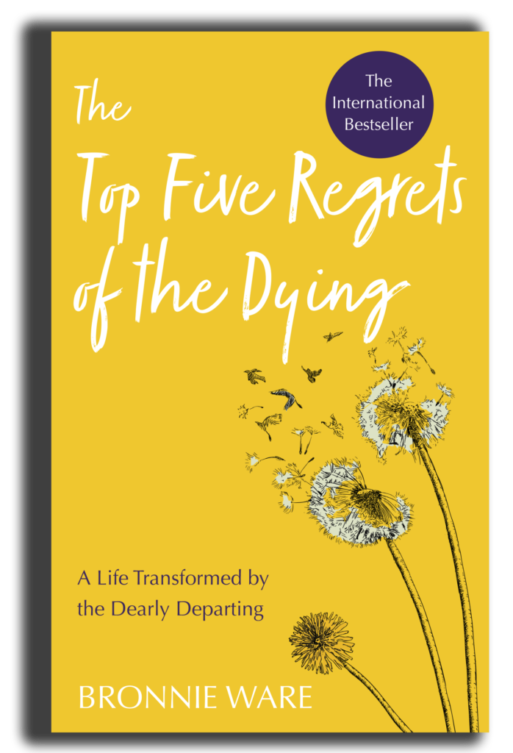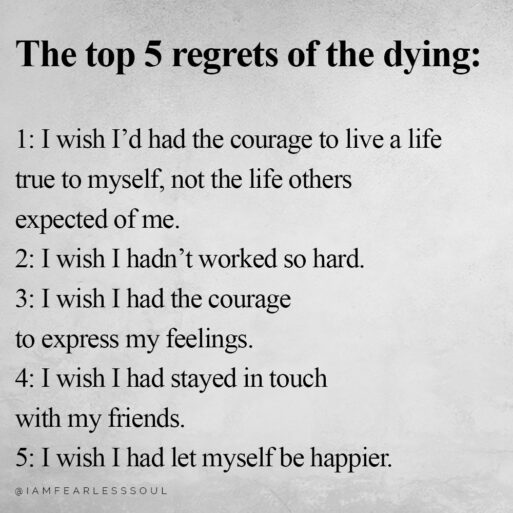
After years working in the banking industry, Bronnie Ware embarked on a quest for renewal and purpose. “The Top Five Regrets of the Dying” reveals what she learned in a new role that would profoundly shape her understanding of life and death.
Transitioning from the sterile halls of finance to the intimate setting of palliative care, Ware spent her days tending to individuals in their final moments. In doing so, she not only addressed their physical needs but also engaged them in deep conversations about their lives, listening as they revealed their greatest regrets and desires for a second chance.
Sparked by a blog post in 2009, “The Top Five Regrets of the Dying” distills Ware’s insights from her experiences into a poignant narrative. While it catalogues the most common regrets of her patients, the book transcends a mere collection of reflections, becoming a deeply personal account of Ware’s own journey through adulthood.

Credit: Iamfearlesssoul.com
The narrative begins with Ware’s embrace of a vagabond lifestyle across Australia and the United Kingdom, a chaotic existence that eventually leads her to the role of a live-in caregiver. With no formal training in this area, she instinctively adapts, finding fulfillment in the raw intimacy that comes from sharing life’s final moments with her patients. Their stories, rich in detail and emotion, reveal not only regrets but also the intricate tapestry of their lives — family dynamics, friendships, and the essence of what truly matters.
Ware’s writing is marked by a refreshing vulnerability; she openly acknowledges her past mistakes with a humility born of deep reflection. Her observations are incisive and poignant, presented in a straightforward manner. For example, she writes:
“Surrender is not giving up, far from it. Surrender takes an enormous amount of courage. Often we are only capable of doing so when the pain of trying to control the outcome becomes too much to bear. Reaching that point is actually liberating, even if it is not fun.”
Yet, what resonates most powerfully is Ware’s candid exploration of the difficulties inherent in living authentically. She shares her struggles, affirming that embracing a life without regrets is a challenge, and underscoring the courage required to pursue such a path.

Author Bronnie Ware
“The Top Five Regrets of the Dying” is a compelling read for anyone navigating grief or reflecting on their own life choices. As readers accompany Ware through the poignant regrets of her patients, they may find themselves prompted to reassess their own perspectives and priorities. The book serves as a reminder that our time is finite and that living without regrets demands intentionality and self-awareness.
In the end, Ware’s work is not just an elegy for the dying; it is a call for the living to embrace their lives fully, reminding us that the journey toward a regret-free existence is one worth pursuing.

 “The Top Five Regrets of the Dying” by Bronnie Ware
“The Top Five Regrets of the Dying” by Bronnie Ware


 John Mulaney’s “Funeral Planning” on Netflix: No Real Plan
John Mulaney’s “Funeral Planning” on Netflix: No Real Plan

 Composting Bodies Is Now Legal in a Dozen States
Composting Bodies Is Now Legal in a Dozen States














